第62章
Born and reared in possession of certain ideas and manners of action, he or she may, before middle life is reached, have had occasion repeatedly to modify, enlarge, and alter, or completely throw aside those traditions.
1
It is these conditions which give rise to the fact so often noticed, that the art of our age tends persistently to deal with subtle social problems, religious, political, and sexual, to which the art of the past holds no parallel; and it is so inevitably, because the artist who would obey the artistic instinct to portray faithfully the world about him, must portray that which lies at the core of its life.The "problem" play, novel, and poem are as inevitable in this age, as it was inevitable that the artist of the eleventh century should portray tournaments, physical battles, and chivalry, because they were the dominant element in the life about him.
It is also inevitable that this suffering and conflict must make itself felt in its acutest form in the person of the most advanced individual of our societies.It is the swimmer who first leaps into the frozen stream who is cut sharpest by the ice; those who follow him find it broken, and the last find it gone.It is the man or woman who first treads down the path which the bulk of humanity will ultimately follow, who must find themselves at last in solitudes where the silence is deadly.The fact that any course of human action leading to adjustment, leads also to immediate suffering, by dividing the individual from the bulk of his fellows; is no argument against it; that solitude and suffering is the crown of thorns which marks the kingship of earth's Messiahs: it is the mark of the leader.
Thus, social disco-ordination, and subjective conflict and suffering, pervade the life of our age, making themselves felt in every division of human life, religious, political, and domestic; and, if they are more noticeable, and make themselves more keenly felt in the region of sex than in any other, even the religious, it is because when we enter the region of sex we touch, as it were, the spinal cord of human existence, its great nerve centre, where sensation is most acute, and pain and pleasure most keenly felt.It is not sex disco-ordination that is at the root of our social unrest; it is the universal disco-ordination which affects even the world of sex phenomena.
Also it is necessary to note that the line which divides the progressive sections of our communities, seeking to co-ordinate themselves to the new conditions of life, from the retrogressive, is not a line running coincidentally with the line of sex.A George Sand and a Henrik Ibsen belong more essentially to the same class in the order of modern development, than either belongs to any class composed entirely of their own sex.If we divide humanity into classes according to type, in each division will be found the male with his complementary female.Side by side with the old harlot at the street corner anxious to sell herself, stands the old aboriginal male, whether covered or not with a veneer of civilisation, eager and desiring to buy.Side by side with the parasitic woman, seeking only increased pleasure and luxury from her relations with man, stands the male seeking only pleasure and self-indulgence from his relations with her.Side by side with the New Woman, anxious for labour and seeking from man only such love and fellowship as she gives, stands the New Man, anxious to possess her only on the terms she offers.If the social movement, through which the most advanced women of our day are attempting to bring themselves into co-ordination with the new conditions of life, removes them immeasurably from certain types of the primitive male; the same movement equally removes the new male from the old female.
The sexual tragedy of modern life lies, not in the fact that woman as such is tending to differ fundamentally from man as such; but that, in the unassorted confusion of our modern life, it is continually the modified type of man or woman who is thrown into the closest personal relations with the antiquated type of the opposite sex; that between father and daughter, mother and son, brother and sister, husband and wife, may sometimes be found to intervene not merely years, but even centuries of social evolution.
It is not man as man who opposes the attempt of woman to readjust herself to the new conditions of life: that opposition arises, perhaps more often, from the retrogressive members of her own sex.And it is a fact which will surprise no one who has studied the conditions of modern life; that among the works of literature in all European languages, which most powerfully advocate the entrance of woman into the new fields of labour, and which most uncompromisingly demand for her the widest training and freedom of action, and which most passionately seek for the breaking down of all artificial lines which sever the woman from the man, many of the ablest and most uncompromising are the works of males.
The New Man and Woman do not resemble two people, who, standing on a level plain, set out on two roads, which diverging at different angles and continued in straight lines, must continue to take them farther and farther from each other the longer they proceed in them; rather, they resemble two persons who start to climb a spur of the same mountain from opposite sides;where, the higher they climb the nearer they come to each other, being bound ultimately to meet at the top.